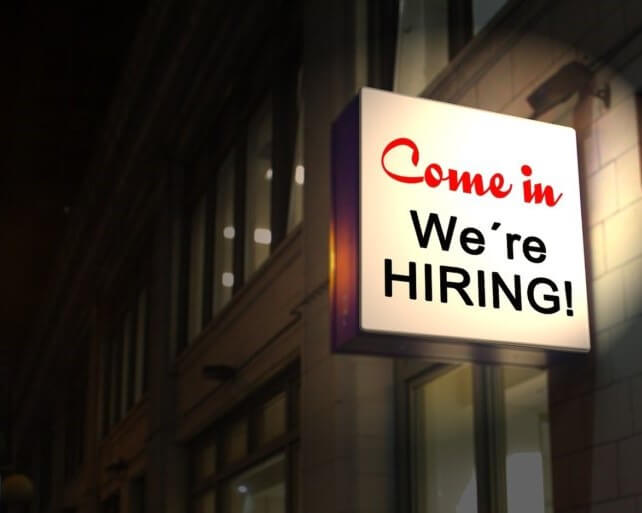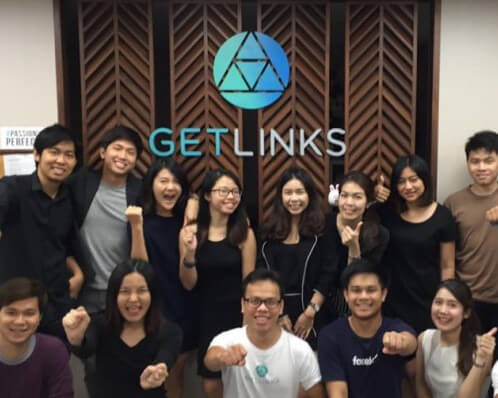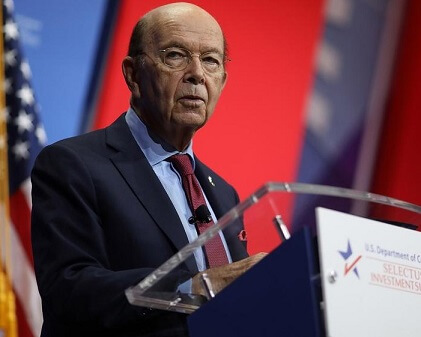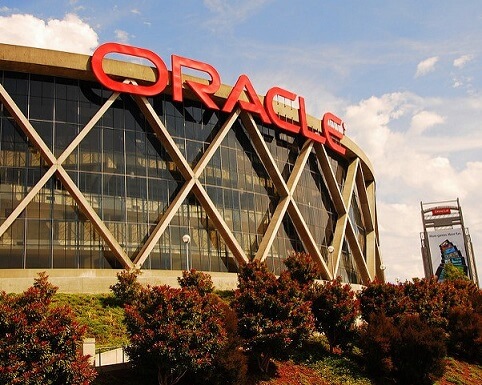
The world’s largest search engine company has always been at the forefront of technology and innovation largely because of the superlative intellect of the workforce. However, if recent internal reports are anything to go by, employee confidence in the CEO Sundar Pichai’s vision is fast failing. In an internal poll called Googlegeist, just over 2/3rd of employees surveyed agreed that the CEO’s vision of what the company can achieve inspires them. This was down 10% from the results of a similar poll the year before. In a similar vein, only 74% of the employees agreed that Pichai and his management team can effectively lead Google into the future, down 18% from the year before.

According to industry estimates, a staggering 17.2 million workers across America are expected to call in sick on Monday, a day after the Super Bowl. In a survey released by consultant firm Robert Half, 42% of senior managers have reported that post-game hangover is the most annoying sports related employee behavior. Another aspect is the ultra-low productivity for employees who do show up – largely due to lack of sleep and other post-recreational factors. In fact, Super Bowl Monday was reported by 72% of HR managers as a preference for an instituted paid leave, in another similar survey conducted last year.

Elon Musk’s automotive brainchild is in troubled waters again, with the company recently formally announcing laying off at least a thousand workers. The electric car manufacturer will be cutting down just over 800 jobs in Fremont, where it’s assembly plant is located. In addition to this, it will also be terminating 130+ employees at its Lathrop facility and around 78 employees at its Palo Alto headquarters. This follows closely on the heels of Musk’s announcement via email earlier in January, where he announced the layoff of 7% of the staff at Tesla, citing the need to be ‘relentless about costs’.

The double-tailed mermaid is leading the way in inclusion and diversity efforts and civil rights and equity. This report follows the high profile controversy in April last year, that led to the coffee chain shutting its stores across the US for half a day of diversity and inclusion training. According to the agencies conducting the assessment, Starbucks’ processes and policy implementations were well aligned to its mission and value statement. While a lot of work remains to be done, law firm Covington and Burling concluded that the holistic approach to inclusion and diversity efforts by the company were commendable.

The most in-demand jobs of the year are going to be in healthcare, according to career portal careercast. In fact, the US Department of Labor has predicted that more the healthcare sector will see the biggest surge in job creation. At the top of this chain are home aides, with a projected 47% increase through 2024. the portal also cited data from Mercer stating that the sector will see 2 million new jobs being created over the next few years. Nurses commanded some of the highest medians in the country, with averages over $70,000. Demand has been racing ahead of supply for the fourth year in US healthcare now.

After vanquishing Uber from the Chinese market a couple of years ago, Chinese ride-hailing giant Didi Chuxing is now reportedly considering layoffs in several of its own support departments. With ten thousand employees across the world, the job cuts are largely expected to affect functions like marketing and human resources. This is aligned to their recent announcements that safety and driver engagement was their biggest priorities in the immediate future. The company’s spokesperson also mentioned that it would be offering incentives to its employees in other engineering functions to move into safety and engagement departments.

People in creative careers possess the highest levels of emotional intelligence, according to a recent report released by payroll and staffing firm Paychex. In the study that covered more than 1000 respondents, employees in the entertainment, arts & design and recreation industries. Among the highest scorers, those employees that scored above the 90% percentile, most were found to be working low wage jobs, with less than 35,000 in annual compensation. The highest valued qualities among respondents with high EQ included positivity, creativity, and perseverance. Emotional Quotient is usually associated with strong leadership skills and also help indicate an employee’s ability to adapt to change

According to Mercer, the global consulting firm paid parental leave being offered by employers surged to 40% over the past three years, up from a meager 25% in 2015. While this is good news for most, employers still have a long way to go with only 9% considering paying their employees unlimited time off. The study, titled 2018 Survey of Absence and Disability Management, also shows that more and more employers are choosing to outsource their leave administration functions to specialized companies and consultants, indicating that the numbers of best practices in leave and benefits administration may continue to improve in the near term.

The creative and marketing industry might be falling behind in their race to catch up with the digital revolution as 88% of the professionals said that they are struggling to keep their skills up-to-date. The Creative Group and AIGA who conducted a 1000 professional strong poll also said that almost half of these professionals felt that advances in technology will create more opportunities for work in their industry. A 70% of them believed that a company’s effort guides the entire upskilling initiative and a 45% of them found that tech adaptation in their company was slow. Just 41% of the respondents thought that the company’s training resources were satisfactorily good or excellent.

Walmart is gamifying the training experience of their store associates with their all-new simulation-style game they call Spark City. The game is in the form of a mobile app, which already has 104,000 downloads and puts the players (read employees) in charge of the dry goods department of the Walmart Store, where they face numerous real-world challenges as store managers and move up the levels as they find solutions to these challenges. The game developed by Walmart associate Daniel Shepherd was piloted with Walmart Academies before being available on a larger scale. The retail giant plans to launch a new version of the app that has other departments – specific cash register and store management levels.

Getting Talent Back to Work is a brand new initiative by SHRM and Koch Industries to encourage individuals and companies in taking a pledge to provide equal opportunities to qualified candidates with a criminal background. So far companies and trade associations representing more than half of the U.S. workforce have put forward a pledge in this direction. The names include The American Staffing Association, the U.S. Chamber of Commerce, the National Federation and the National Restaurant Association among others. SHRM also developed a toolkit in conjunction with the pledge that helps companies in understanding the legal issues surrounding hiring a person with a criminal background, the importance of an evidence-based background check and the dynamics of acquiring and developing such talents as stated by industry leaders.

Screening out is making an exit and recruiters are going for screening in to fill in vacant positions as the unemployment rate hits a fifty year low. The new shift sees the recruiters moving from “must have” to “nice to have” as their skill requirements in a tight job market. A CareerBuilder data report says that 6*5 of HR managers were unable to find the right people for the job after they increased positions and 60% of them reported to have vacancies open for 12 or more weeks. The skill matching is taking a back seat as employees are focusing on a strong base and integrity.

HR leaders are finding more choices than ever in HR technology as big tech names like Microsoft, Google and Facebook are venturing into the domain. 2016 saw Facebook launch Workplace, an employee collaboration platform. Google followed in a similar path with a separate function of HR (recruitment), by launching its job search engine. Microsoft acquired LinkedIn and in 2018 took it a step ahead by channeling more investment towards its talent platforms. Josh Bersin, a longtime HR industry analyst says that Microsoft’s latest products focus on moving HR systems from the back office to the daily work routine of the employees.

Companies in APAC are not very pleased with the HR Tech platforms they currently have with just 45% finding the current technology they have satisfactory reveals a study by Alright Solutions. This is a 6% decrease from 2016-17 data, the explosive growth, however, is evident in automation field with nearly 80% of the companies evaluating and investing in a future structure to effectively accommodate this technology. Companies are increasing their weight on retaining the ‘human’ aspect in human resources and are deploying an increased number of HR Business Partners and Centre of Excellence. This phenomenon is resulting in erosion of the perceived value of both the roles. HR Generalists and HR operations/shared services need a considerable scaling up to fill in the big shoes of company expectations.

The next decade will see 1.4 million U.S. workers losing their jobs and the cost of reskilling will be on the upper side of $34 billion. The World Economic Forum, which published this report further said that the private employers will just provide 25% of the retraining needs that will take the current jobs to a viable, desirable and growing pathway. The private sectors can do more than 25% and help 45% at-risk workers to reskill through stakeholder collaborations that will reduce the cost and time of the entire process. The report mentioned that the government can assist 77% at-risk workers in the task.

GetLinks, a Thai startup is checking all boxes right to get their tech recruitment game right. The 3-year-old startup that raised “eight figures” in US Dollars during last year’s funding has placed 1000 candidates since its inception. GetLinks has clients like Siam Cement Group, a major Thai conglomerate and most of them feel that the focus on specific skills and matching exact requirement saves a lot of time and effort. Google and Temasek in their recent study found that South East Asia’s internet economy will be worth $240 billion by 2025 and platforms like GetLinks answer the burning question of gaps in tech recruitment.

Strong morals and integrity of an employee can be the shield against adopting the ways of bad bosses say a group of international researchers in their studies published in Harvard Business Review. It indicated that an abusive superintendent does not always translate to a cycle of abuse if the employees have their integrity intact. A survey that took 500 supervisory employees and their leaders that the disidentification increased to 12% when the superior is abusive or toxic. If the employee has a strong moral structure then this rate increases to 14%. The psychological distancing factor plays a key factor in the event of a toxic boss and the ethical behavior gets an 8% raise, while the rate of abuse towards the subordinates of a toxic supervisor drops by 6%.
.jpg)
A 46-year old white-collar employee of Subaru Corp known for its Legacy and Forester Cars plunged to his death from the factory roof in 2016 due to overwork or as Japanese say ‘karoshi’. Recent findings by the deceased employee’s regarding the 2016 incident led the automobile company into investigation mode which leads Subaru to reveal that it skipped paying overtime wages to some 3,400 employees who under-logged their hours. The outstanding wages from mid-2015 to mid-2017 amount to $7.08 million, which the company says it paid to its employees last March. The pay issue came out after the reported lapses in governance that lead to below par vehicle inspection in 2017.

‘Get a loan’ is what U.S. Commerce Secretary Wilbur Ross is meaning to say the 80,000 furloughed federal employees. He mentioned that he is out of wits as to why the furloughed employees won’t get a loan to pay their bills as there are advertisements from financial institutions offering the same. He is of the opinion that this is “not a good excuse why there should be a liquidity crisis, true the people might have to pay a little bit of interest.” Meanwhile Ross’s boss, President Trump said that he did not hear the comment, but he does understand where he is coming from.

Department of Labor updated its 2017 lawsuit against Oracle in the light of fresh data and claims that the company’s discriminatory practice against Asians, people of African descent and women cost the mentioned employees $400 million in missed wages. In their complaint, DOL says that the tech company built the discrimination around two “potential pathways”. The first pathway is to design a compensation on the base of their previous pay package and the second one is putting them in less lucrative job roles. DOL put forward an instance where the company that earns $100 million every year in federal and public contracts hired 450 Asians out of their 500 college hires between 2013 and 2015 and held their visa authorization dependency on the company as a tool to suppress them.
This website uses cookies to enhance website functionalities and improve your online experience. By browsing this website, you agree to the use of cookies as outlined in our privacy policy .